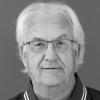Coordinator research program Disasters and Environmental Hazards; endowed professor 'Crises, safety and health', University of Groningen, the Netherlands
Publicatie
Publication date
The expert group health research and care after disasters and environmental crises: an analysis of research questions formulated by Dutch health authorities for the expert group between 2006 and 2016.
Alting, D., Dückers, M.L., Yzermans, J. The expert group health research and care after disasters and environmental crises: an analysis of research questions formulated by Dutch health authorities for the expert group between 2006 and 2016. Prehospital and Disaster Medicine: 2017, 32(supp. 1), p. S 197. Abstracts: WADEM Congress on Disaster and Emergency Medicine 2017, Toronto, 25-28 april 2017
Read online
Study/Objective
The aim of this study is:
(1) to examine developments in the research questions, submitted to the Expert Group Health Research and Care after Disasters and Environmental Crises between 2006 and 2016;
(2) to explore implications of the research questions for the nature of advice given to national and local health authorities.
Background
After the Bijlmermeer plane crash (1992) and the Enschede fireworks disaster (2000), the need to rapidly enclose available knowledge on disaster health research and psychosocial support in crisis situations was broadly recognized in the Netherlands. A decade ago the Dutch ministry of health installed the Expert Group to assist health authorities in addressing complex issues raised by (potential) public health crises.
Methods
Questions submitted to the Expert Group were categorized along their possible knowledge objectives:
(1) health care provision in practice;
(2) policy-making;
(3) public interest;
(4) scientific interest.
Stakeholders were interviewed to gain a better understanding of the advice and its implementation in relation to the crisis context.
Results
Despite notable variation in cases and type of questions, most of the 24 questions were aimed at practical health care provision, policy-making and public interest.
In practice, the Expert Group recommended approaches that could be more passive or active. Regardless of the proposed attitude, a safety valve should be embedded in the process to guard public health interests. For instance, a possible lesson to verify (learned from a long-lasting soil remediation of a former tarmac construction site), is that a more proactive attitude by the Expert Group in future cases might prevent unnecessary hiccups in addressing health hazards
(i.e. reduce exposure of citizens to stressful circumstances).
Conclusion/Discussion
Several practical recommendations were formulated based on the material. Evaluation of advice and its implementation is important for quality improvement. (aut. ref.)
The aim of this study is:
(1) to examine developments in the research questions, submitted to the Expert Group Health Research and Care after Disasters and Environmental Crises between 2006 and 2016;
(2) to explore implications of the research questions for the nature of advice given to national and local health authorities.
Background
After the Bijlmermeer plane crash (1992) and the Enschede fireworks disaster (2000), the need to rapidly enclose available knowledge on disaster health research and psychosocial support in crisis situations was broadly recognized in the Netherlands. A decade ago the Dutch ministry of health installed the Expert Group to assist health authorities in addressing complex issues raised by (potential) public health crises.
Methods
Questions submitted to the Expert Group were categorized along their possible knowledge objectives:
(1) health care provision in practice;
(2) policy-making;
(3) public interest;
(4) scientific interest.
Stakeholders were interviewed to gain a better understanding of the advice and its implementation in relation to the crisis context.
Results
Despite notable variation in cases and type of questions, most of the 24 questions were aimed at practical health care provision, policy-making and public interest.
In practice, the Expert Group recommended approaches that could be more passive or active. Regardless of the proposed attitude, a safety valve should be embedded in the process to guard public health interests. For instance, a possible lesson to verify (learned from a long-lasting soil remediation of a former tarmac construction site), is that a more proactive attitude by the Expert Group in future cases might prevent unnecessary hiccups in addressing health hazards
(i.e. reduce exposure of citizens to stressful circumstances).
Conclusion/Discussion
Several practical recommendations were formulated based on the material. Evaluation of advice and its implementation is important for quality improvement. (aut. ref.)
Study/Objective
The aim of this study is:
(1) to examine developments in the research questions, submitted to the Expert Group Health Research and Care after Disasters and Environmental Crises between 2006 and 2016;
(2) to explore implications of the research questions for the nature of advice given to national and local health authorities.
Background
After the Bijlmermeer plane crash (1992) and the Enschede fireworks disaster (2000), the need to rapidly enclose available knowledge on disaster health research and psychosocial support in crisis situations was broadly recognized in the Netherlands. A decade ago the Dutch ministry of health installed the Expert Group to assist health authorities in addressing complex issues raised by (potential) public health crises.
Methods
Questions submitted to the Expert Group were categorized along their possible knowledge objectives:
(1) health care provision in practice;
(2) policy-making;
(3) public interest;
(4) scientific interest.
Stakeholders were interviewed to gain a better understanding of the advice and its implementation in relation to the crisis context.
Results
Despite notable variation in cases and type of questions, most of the 24 questions were aimed at practical health care provision, policy-making and public interest.
In practice, the Expert Group recommended approaches that could be more passive or active. Regardless of the proposed attitude, a safety valve should be embedded in the process to guard public health interests. For instance, a possible lesson to verify (learned from a long-lasting soil remediation of a former tarmac construction site), is that a more proactive attitude by the Expert Group in future cases might prevent unnecessary hiccups in addressing health hazards
(i.e. reduce exposure of citizens to stressful circumstances).
Conclusion/Discussion
Several practical recommendations were formulated based on the material. Evaluation of advice and its implementation is important for quality improvement. (aut. ref.)
The aim of this study is:
(1) to examine developments in the research questions, submitted to the Expert Group Health Research and Care after Disasters and Environmental Crises between 2006 and 2016;
(2) to explore implications of the research questions for the nature of advice given to national and local health authorities.
Background
After the Bijlmermeer plane crash (1992) and the Enschede fireworks disaster (2000), the need to rapidly enclose available knowledge on disaster health research and psychosocial support in crisis situations was broadly recognized in the Netherlands. A decade ago the Dutch ministry of health installed the Expert Group to assist health authorities in addressing complex issues raised by (potential) public health crises.
Methods
Questions submitted to the Expert Group were categorized along their possible knowledge objectives:
(1) health care provision in practice;
(2) policy-making;
(3) public interest;
(4) scientific interest.
Stakeholders were interviewed to gain a better understanding of the advice and its implementation in relation to the crisis context.
Results
Despite notable variation in cases and type of questions, most of the 24 questions were aimed at practical health care provision, policy-making and public interest.
In practice, the Expert Group recommended approaches that could be more passive or active. Regardless of the proposed attitude, a safety valve should be embedded in the process to guard public health interests. For instance, a possible lesson to verify (learned from a long-lasting soil remediation of a former tarmac construction site), is that a more proactive attitude by the Expert Group in future cases might prevent unnecessary hiccups in addressing health hazards
(i.e. reduce exposure of citizens to stressful circumstances).
Conclusion/Discussion
Several practical recommendations were formulated based on the material. Evaluation of advice and its implementation is important for quality improvement. (aut. ref.)


